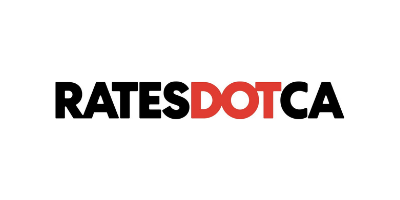For consumers with families and loved ones, life insurance is important as it helps to protect your beneficiaries by leaving them a tax-free benefit when you die. It can also help pay debts, end-of-life expenses, and provide extra support through retirement.
There are many types of life insurance policies available, which can make choosing a life insurance policy difficult. One such type of life insurance that you may want to consider is Term 100 life insurance, which offers life insurance coverage for life.
What Is Term 100 Life Insurance?
Term 100 life insurance is a form of permanent life insurance, meaning that it offers coverage as long as the policyholder lives. The premiums that policyholders pay are the same throughout a policyholder’s life, provided they don’t miss any payments. Once they reach 100 years of age, they stop paying premiums while still enjoying the coverage. If they die and have a term 100 life insurance policy, their beneficiaries will receive the value of that policy tax-free. Unlike other kinds of permanent insurance, there is no savings or investment component to this policy, meaning that policyholders cannot withdraw from or borrow against their policy.
Term 100 Life Insurance vs. Whole Life Insurance
In this section, we will compare term 100 life insurance and whole life insurance.
| Term 100 Life Insurance | Whole Life Insurance | |
| Premium costs | $375 – $400 | $400 – $450 |
| Coverage | Depends on the carrier, often $50,000 and up | Depends on the carrier, usually $10,000 and up |
| Length | Lifetime | Lifetime |
| Death benefit | Tax-free | Tax-free |
| Cash value | None | portion of premiums paid monthly |
Pros And Cons Of Term 100 Life Insurance
Just like any kind of life insurance, Term 100 life insurance has its pros and cons.
Pros
- Lower Cost – Term 100 life insurance is cheaper than a whole life plan, making it a more affordable option.
- Term Doesn’t End Or Require Renewal – Unlike a term insurance plan, it doesn’t end, so there is no need to renew it. Term 100 life insurance is free after the policyholder turns 100, meaning that most elderly people experience significant cost savings when they need them the most.
- Free After 100 – As mentioned, you are no longer required to pay a premium once you turn a 100. You’ll be covered for free until death.
- Premiums Stay The Same – Premiums on term 100 life insurance also stay the same and are often guaranteed to stay the same for life. The constant premiums mean cost savings for the policyholder in the long run.
- Tax-Free – Term 100 life insurance is also a tax-free benefit, meaning that a policyholder’s beneficiaries get more money when the policyholder passes away.
Check out how life insurance affects debt.
Cons
- Your Policy Can Lapse If You Don’t Pay Your Premiums – This can be particularly difficult for elderly people on a fixed income. If you don’t pay your premiums, your policy can lapse. When this happens, it means you no longer will be eligible for coverage. If anything were to happen to you, your beneficiaries would not receive any payout.
- There Is No Investment Component – Also, unlike many other life insurance policies, there is no investment component. A lack of an investment component means that a portion of your premium will not earn non-taxable interest while remaining in your policy.
Here are 5 reasons you need a will in Canada.

Loans Canada Lookout
LOOKING OUT FOR YOUR BEST INTERESTHow To Tell If Your Insurance Agent Is Misleading You
READ ARTICLEWhere Can You Get Term 100 Life Insurance?
You can generally get term 100 insurance from the same places you would get other life insurance policies. Banks, such as TD, BMO, Desjardins, and CIBC, offer term 100 life insurance. You can also get it through insurance companies, such as Manulife, and through insurance brokers like Emma, Policy Advisor, Rates.ca, etc.
Features To Consider When Purchasing Term 100 Life Insurance
There are several things you should consider when purchasing term 100 life insurance, including the following:
- Minimum and Maximum Coverage Limits – Many providers will have coverage limits. To save time and avoid any unnecessary credit checks during application, research how much coverage you need. This will allow you to cross-check with the provider to see if they offer enough coverage. Depending on your situation, some providers may not offer enough coverage, while others may have too high of a limit.
- Age Restrictions – You must also consider that in general, insurance providers will not allow you to purchase certain insurance policies after you reach a certain age.
- Check If There Are Any Exclusions – Generally, policies will have certain exclusions that will prevent the policy from being paid out. Make sure that you read the fine print when purchasing a policy so you know about these exclusions. For example:
- If the insurance company is given incorrect or incomplete information during the application process, such as age, health, or smoking habits, cannabis use, the insurance company has the right to deny or adjust the benefit payout.
- Deaths due to suicide in the first years of coverage are also usually not paid out.
Find out if you can get a life insurance policy without a medical exam.
Should You Get Term 100 Life Insurance?
If you want to pay the same premiums for life, which would result in long-term cost savings, Term 100 life insurance may be for you. Also, if you want to leave behind a tax-free benefit for your loved ones, and to have an insurance plan that doesn’t run out, you might want to consider term 100 life insurance.
Other Types Of Life Insurance
Besides term 100 life insurance, there are two other types of permanent insurance – whole life insurance and universal life insurance.
Whole Life insurance
As the name implies, whole life insurance lasts for a policyholder’s lifetime, as long as they continue paying their premiums. Premiums are guaranteed, so they don’t increase. There is a savings component, where part of the premium each month goes to a savings account, which is managed by the insurance company. Policyholders can invest the money in this account or can withdraw from it or borrow against it when they need to. Withdrawals are tax-free. It works best for people who want a guaranteed savings account and long-term protection.
Universal Life Insurance
While universal life insurance is similar to whole life insurance, there are some key differences. You can change how much you pay for your premiums at will, which will change the amount of your death benefit. You can also withdraw from or borrow against the savings account without cancelling your insurance policy, as long as you have enough money in the account. Universal life insurance is best for those who require flexibility in their insurance policies.
Term 100 FAQs
What happens if I reach 100 but haven’t passed away yet?
How much life insurance do I need?
Are the rates guaranteed for term 100 life insurance?
Bottom Line
Term 100 life insurance is one kind of permanent life insurance. It is different from whole life insurance and universal life insurance in the sense that policyholders stop paying premiums after they reach 100 years of age. Unlike other kinds of permanent life insurance, there is also no savings or investment component to the policy. This kind of life insurance policy is best for those who would prefer to have consistent premiums to pay throughout their lifetime, want lifetime coverage, and want to leave behind a tax-free benefit for their beneficiaries.






